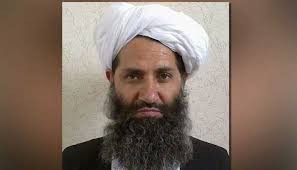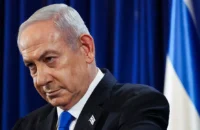By The Editorial Board, Newyork Times
The United States has for years held off targeting senior Taliban leaders while they were inside Pakistan’s Baluchistan Province, where Pakistan’s powerful army has long protected them. But President Obama crossed that line by authorizing the drone strike that killed the Taliban leader Mullah Akhtar Muhammad Mansour on Saturday. Calling the killing“an important milestone,” Mr. Obama said he had acted because Mullah Mansour was preparing attacks on American targets in Afghanistan and had resisted peace talks.
The attack was a sign of American exasperation with Pakistan’s duplicitous game of working with Washington to combat terrorism while sheltering the Taliban and its even more hard-line partners in the Haqqani network. The Pakistanis have relied on the Taliban and the Haqqanis to protect their interests in Afghanistan and prevent India from increasing its influence there.
After Mullah Mansour replaced Mullah Muhammad Omar, the Taliban leader who died in 2013, the Americans and Afghans expected that Pakistan’s security services would persuade him to help negotiate a political agreement with Afghanistan, which remains the only viable solution to the war. Mullah Mansour instead rejected peace talks and stepped up attacks on Afghan and American targets, enlarging the Taliban’s territorial control and further destabilizing Kabul’s dysfunctional government.
The fact that Mr. Obama has now ordered an attack in Baluchistan, rather than the border region where Pakistan has tolerated previous American operations, raises a big question: Does he intend to expand the American mission in Afghanistan, now focused on training and advising Afghan forces and ensuring that Al Qaeda cannot rebuild?
There are 10,000 American troops in Afghanistan, a number that is scheduled to drop to 5,500 by the end of the year. Military commanders appear likely to recommend against such a reduction. In Vietnam on Monday, Mr. Obama insisted that “we are not re-entering the day-to-day combat operations” that he declared an end to in 2014. But he is under pressure in Congress and elsewhere to significantly step up the fight. That would be a questionable choice for which he has not yet made a case.
Mullah Mansour’s taxi was obliterated from the sky as he returned to Pakistan from Iran. News reports said he went there for medical treatment, but one expert told The Times that Iran has been quietly helping the Taliban for several years, as a hedge in case the militants regain power in Kabul.
Pakistan complained Monday that the strike had violated its sovereignty. But much like the American raid that killed Osama bin Laden in 2011 in a Pakistani garrison town, the attack might not have been necessary had Pakistan cooperated in the first place and worked with the Americans to defeat the Taliban.
The killing is certain to worsen relations between Pakistan and America, which are already frayed. Other effects are less predictable. The Taliban moved quickly on Wednesday to name Mawlawi Haibatullah Akhundzada, a deputy to Mr. Mansour with strong religious credentials, as the new leader. One hopeful possibility is that he and other Taliban leaders will now feel more threatened, thus more amenable to peacemaking. Conversely, the Taliban, which now suffers from internal divisions, could continue in their aggressive ways. A third possibility is that it could lose fighters to the Islamic State. In any case, studies suggest that killing terrorist leaders usually does not mean an end to the violence.
The question to Mr. Obama is whether this killing is merely an end in itself or part of a strategy to drive Pakistan, America’s supposed ally, and Taliban leaders to the peace table.



























